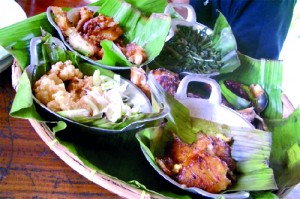What’s the opposite of fast food? – slow food!
View(s):Slow Food is a global, grassroots movement that represents the ethical manufacturing, preparation and consumption of food. The movement currently sees participation of around 150 members.
The movement aims to promote the ethical production and consumption of food so as to promote sustainable development, biodiversity conservation as well as preservation of indigenous types of food and methods of preparation. So exactly how does the slow food movement support the environment by making a positive mark? The objective of slow food is to ensure that everyone has the right to good, clean and fair food. Good meaning the product is of a high quality with a flavorful taste, clean meaning the  naturalness of the production and transportation of food and fair ensures that adequate pricing and treatment is achieved for both, the consumer as well as the producer.
naturalness of the production and transportation of food and fair ensures that adequate pricing and treatment is achieved for both, the consumer as well as the producer.
The rapid rate of globalisation has led to many people streamlining their food choices, due to higher production, better yield, and hence lower cost. Often this also results in the dwindling of indigenous plants and food types. The long-term result of this situation would be the loss of diversity of food types (hence crops become more susceptible to diseases) yet another consequence would be the loss of cultural diversity and loss of diversity of the taste of foods. Thus slow food aims to support local produce and in the process supports local farmers who make a significant and sustainable contribution towards development. Slow food stands diametrically opposite to fast food, which shows rapid production and rapid consumption. Slow food aims to make the consumer aware of the source of their food, the process it has gone through and identify just how ethical the food production procedure is. The movement also functions to bring together farmers, producers, cooks and consumers to work together and defend the agricultural heritage of a community. The organisation carries out many activities worldwide to promote the concept of slow food, through food education events, and products on the verge of extinction are highlighted through the Ark of Taste catalogue. Every year on December 10, the Slow Food movement celebrates terra madre (mother earth) day – which brings together local communities from around the world to share and exchange their local agricultural heritage. The variety of slow foods displayed at these events varies from slow wine, to slow fish and even slow nuts and chocolates.
You too can become a part of this movement by making the transition to becoming a responsible consumer, through slow food individuals are encouraged to slow down and use the senses to enjoy the quality of the food with the awareness that good food is produced in harmony with the environment and local cultures. You can also volunteer your skills and knowledge in increasing the awareness of this concept to create and strengthen a better food network within your community. Furthermore, supporting local food networks also minimises the carbon emissions associated with the mass movement and transportation of agricultural food products.
So will you choose to take the slow path, to ensure there is equality, cleanliness and provides opportunities for consumer and producer alike.
Joanne Kotelawala, (British Council International Climate Champion, British Council Active Citizens Facilitator and Past President of Green Army of Spectrum Institute of Science and Technology)
Follow @timesonlinelk
comments powered by Disqus






















